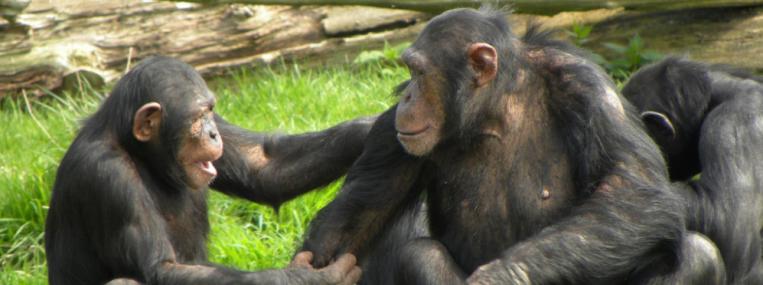
Planet of the Neo-Darwinists
Philosophers cast a notable dissenter into the outer darkness.

Philosophers cast a notable dissenter into the outer darkness.
Everything you see and hear is fake. The blue of the sea and the angelic notes of a church choir do not exist. Those sensations are figments of our “manifest image”—the flawed version of reality handed to us by our senses. We perceive patterns of light as colors, and vibrations as sounds, because those adaptations have maximized our chances of survival over hundreds of thousands of years.
So goes the open-and-shut logic of neo-Darwinian materialism, the metatheory held by top philosophers and scientists such as the biologist Richard Dawkins, author of The God Delusion and The Selfish Gene, Tufts University philosopher Daniel Dennett, and Harvard psychologist Steven Pinker.
Materialists acknowledge the existence of measurable phenomena that are subject to the laws of physics. To Dawkins and likeminded thinkers, everything else—color, sound, free will, consciousness, your distinct sense of self when you see your reflection in the mirror—is bunk, and human beings are nothing more than “molecules in motion,” explains Andrew Ferguson, a critic of neo-Darwinism, in The Weekly Standard.
In 2012, Thomas Nagel dared to question his sure-minded colleagues. The venerated American philosopher argued that neo-Darwinists can’t account for basic elements of existence such as human reasoning and morality. “There is little or no possibility,” Nagel wrote in his bombshell tome Mind and Cosmos, “that these facts depend on nothing but the laws of physics.”
Howls of protest erupted in philosophy departments and laboratories across the land. “What has gotten into Thomas Nagel?” Steven Pinker wailed on Twitter, decrying “the shoddy reasoning of a once-great thinker.” The economist Brad DeLong scoffed that “Thomas Nagel is not smarter than we are.” The Philosophers’ Magazine called Nagel’s publisher, Oxford University Press, “irresponsible” for even bringing the book out.
Once a darling of progressive intellectuals, Nagel had all but committed treason. “It is simply taken for granted,” Ferguson explains, “that by attacking naturalism”—which falls under the broader umbrella of neo-Darwinism—“Thomas Nagel has rendered himself an embarrassment to his colleagues and a traitor to his class.”
Nagel insists that neo-Darwinism just doesn’t add up. Take human brainpower. The ability to write a symphony or solve complex equations offered no distinct advantages when humans first walked the African savannah. What evolutionary purpose, for that matter, could the ability to ruminate on the meaning of life—whether around a caveman’s fire or in today’s ivory tower—possibly serve? As Ferguson, a senior editor at the Standard, puts it, “The conscious brain that is able to come up with neo-Darwinism as a universal explanation simultaneously makes neo-Darwinism, as a universal explanation, exceedingly unlikely.”
The same goes for humans’ nuanced sense of morality. It often contradicts basic survival instincts, so how could it have resulted from natural selection?
The neo-Darwinian camp maintains that morality does not exist anyway. Moral judgments are, in Ferguson’s words, “useful tricks human beings have learned to play on ourselves.”
Neo-Darwinian materialism serves science well in some respects. “Materialism has allowed us to predict and control what happens in nature with astonishing success,” Ferguson notes. “But the success has gone to the materialists’ heads. From a fruitful method, materialism becomes an axiom: If science can’t quantify something, it doesn’t exist.” The philosopher Edward Feser, one of Nagel’s rare defenders, says it’s as if somebody concluded that because metal detectors are terrific at finding coins, they tell us everything we need to know about metallic objects. That leaves out a lot, including their size, shape, weight, and color.
Why have scientists and philosophers taken materialism to such extremes? “The priority given to evolutionary naturalism in the face of its implausible conclusions,” Nagel states, “is due, I think, to the secular consensus that this is the only form of external understanding of ourselves that provides an alternative to theism.”
Nagel, himself an avowed atheist, believes that there is a way to understand existence while avoiding both God and the absurd strictures of neo-Darwinian materialism. Maybe matter was somehow predisposed to producing beings with consciousness.
Ferguson thinks Nagel fails in his attempt to stake out such a position. But he hails the heretic’s pluck in the face of his appalled colleagues’ reaction. “There’s no doubting the honesty and intellectual courage—the free thinking and ennobling good faith—that shine through his attempt.”
THE SOURCE: “The Heretic” by Andrew Ferguson, in The Weekly Standard, March 25, 2013.